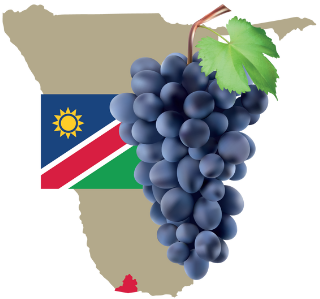Capespan is reshaping Southern Africa’s table grape export logistics. In a pioneering move, the company has routed the vast majority of grapes from Namibia as well as the Northern Cape through Walvis Bay in Namibia, destined for the EU and UK markets. This decision was driven by the poor performance of the South African ports traditionally used by Capespan, alongside the Walvis Bay port being run by a private port operator and the introduction and reliability of a new, additional MSC Mediterranean Shipping Company service out of Walvis Bay.
The MSC service offers a shortened voyage transit time of 12 to 13 days directly to Rotterdam and London Gateway, minimising delays and ensuring fresher produce reaches its destination, at least 8 days shorter than from the Port of Cape Town. Walvis Bay Port is operated by private operator TIL (https://tilgroup.com/), a subsidiary of MSC. This brings operational efficiency and low risk of disruptions at a time when South African ports, like Cape Town, continue to grapple with weather delays, equipment shortages, poor productivity and congestion. Given that grapes in Cape Town regularly have to wait in stack for 7-10 days to load from Cape Town, and need to ship for almost a week longer, it is expected that fruit shipped via Walvis Bay will arrive on average 2 weeks sooner than if shipped via Cape Town. In terms of arrival condition and shelf life, this will bring a huge improvement.
The special MSC service from Walvis Bay, originally planned for six vessels, has now been extended to include a seventh vessel to cater for more fruit from South Africa’s Orange River region. The service started on 22 November and the last vessel is expected to berth in Walvis Bay on 3 January 2025.
This season, the MSC Kyungmin marked the start of this special service from Walvis Bay, loading 258 grape containers. Of these Capespan loaded a total of 110 containers including 103 from the Namibia Grape Company (NGC) and 7 from the Northern Cape. This makes the NGC the grower with the biggest volumes exported via Walvis Bay, and Capespan the first exporter to start moving significant volumes of Northern Cape grapes via Walvis Bay. The MSC Kyungmin berthed on Friday, 22 November and sailed on Sunday, 24 November after loading all containers over the course of 3 days, despite some wind slowing operations down. This vessel’s estimated arrival at Rotterdam is Monday 9 December and at London Gateway on Tuesday 10 December. The next vessel, the MSC Helena III, is scheduled to berth and load on 29 and 30 November.
The move to Walvis Bay highlights Capespan’s commitment to maintaining excellent arrival condition, quality and reliability for its global customers while adapting to logistical challenges by using Namibian infrastructure. While Capespan has led the way in this initiative, the interest in using Walvis Bay as an alternative port for South African and Namibian table grapes is currently gaining momentum across the industry.

Above: The MSC Kyungmin being loaded at the Walvis Bay port on Saturday, 23 November 2024.
Building Momentum: Capespan’s Strategic Partnership with the NGC
In addition to servicing clients in South Africa’s Northern Cape production region, Capespan’s decision to utilise Walvis Bay aligns closely with the company’s broader strategy to enhance production and exports from Namibia. This approach was underscored by the use of Namibian service providers, such as transporters and freight forwarders. This initiative builds on the recent renewal for a further 20 years Capespan’s agreement with the Namibia Grape Company. The partnership aims to build on the current 476 ha of table grapes being farmed by the NGC, streamline logistics, maximise export potential, and reinforce Namibia’s position in the global fresh produce market. Both the NGC and Capespan confirmed their intention to prioritise shipments via Walvis Bay for the remainder of the table grape season, for Namibian as well as Northern Cape fruit.

Capespan CEO Charl du Bois commented on the establishment of this partnership as follows: “This collaboration not only strengthens our partnership in Namibia, but also exemplifies our commitment to innovative and sustainable solutions in the fresh produce supply chain. By leveraging Walvis Bay, we are setting a new benchmark for efficient fruit exports from Southern Africa.”
Shipping Updates and Industry Outlook – Port of Cape Town
Despite improvements in efficiency in this port, challenges persist. Over the past week, the Port of Cape Town lost over 43 hours to wind delays and 8 hours to congestion. This follows weeks of disruptions causing delays to the shipping schedules of most lines by 5-7 days.
Capespan remains resilient and innovative in finding solutions to logistical challenges, positioning itself as a leader in efficient, reliable, and sustainable fresh produce exports.
